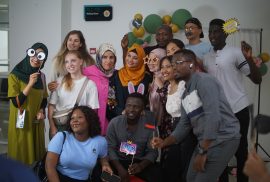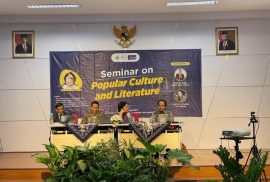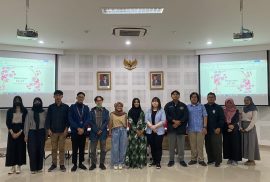On Wednesday, May 15, 2024, a gathering event held by the UGM Buddy Club Community under the auspices of the UGM Office of International Affairs successfully succeeded the International Student Gathering Breaking Barriers 2024 held in the Hallway of the Teaching Industry Learning Center (TILC) Building, Vocational School UGM. This gathering is a big event that is held every year by inviting all international students, including exchange students from foreign countries, undergraduate and postgraduate students, and students of the UGM Indonesian Language and Culture Learning Service (INCULS), to join together. The international students were accompanied by local UGM students who participated in an agenda of activities such as cultural exchange sessions, lecture experiences at Universitas Gadjah Mada, and tasting traditional food from the origin of the international students.
As the faculty with the largest number of international students at Universitas Gadjah Mada, the Faculty of Cultural Sciences UGM through its international students who are members of the Indonesian language and culture introduction program, INCULS UGM, attended and enlivened the agenda of the International Student Gathering Breaking Barriers 2024. The agenda began with the Oebah Literature Dance that welcomed all invited guests, followed by remarks from Dr. apt. Puji Astuti, S.Si., M.Sc., as Director of the UGM Directorate of Global Partnerships and Relationships, followed by remarks from the President of the UGM Buddy Club Community, Natasya Samuela Serefina. Both speeches gave a message of gratitude for the presence of all agenda guests in this activity as well as a moment to interact, get to know each other, and learn across different cultures.
The international and local students then enjoyed collaborative performances from local and international students, a fashion show, and a cultural exchange and batik making session that was open to all guests. Towards the closing of the event agenda, local cultural dances from the UGM Surakarta Style Javanese Arts Unit (UKJGS) enlivened the closing of the event which ended with a flower giving session to commemorate Bring Flowers to Someone Day given to international and local students and invited guests by the committee. The event agenda was then closed with parting words to look forward to next year’s International Student Gathering Breaking Barriers.






